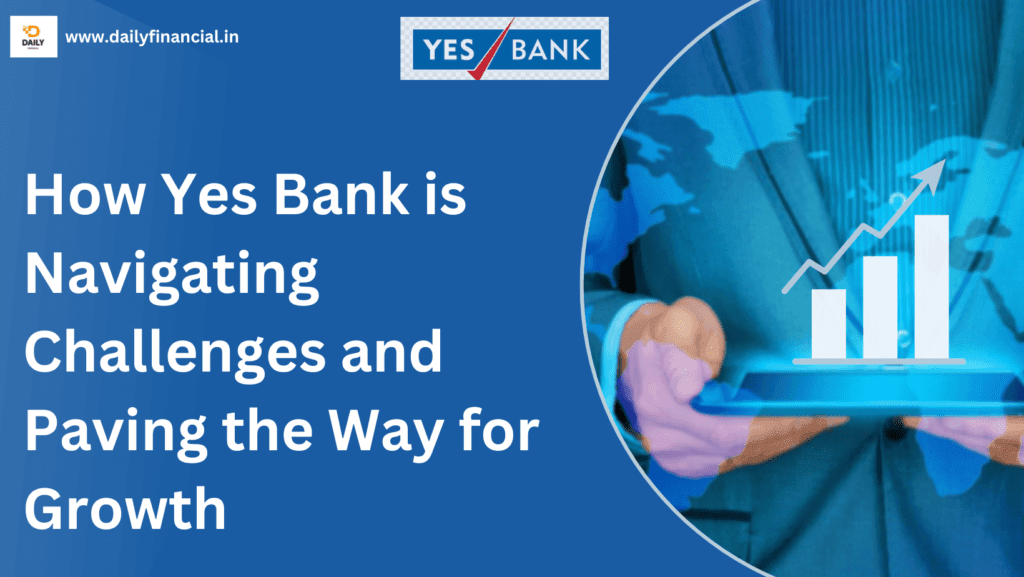
Why Emirates NBD’s ₹26,850 Crore RBL Deal in 2025 Will Shock Your Banking Assumptions
Emirates NBD’s ₹26,850 crore RBL Bank takeover isn’t just India’s largest banking FDI—it’s a hidden strategic masterstroke reshaping the India-UAE financial corridor. Discover the shocking reasons why this deal changes everything, what RBL shareholders gain instantly, and the secret competitive advantages no other bank can replicate now.
On October 18, 2025, Emirates NBD, Dubai’s largest government-backed lender, officially announced its entry into the Indian private banking sector with a ₹26,850 crore infusion through a preferential share issue at ₹280 per share. Once executed, the Middle Eastern lender will hold a 60% controlling stake in RBL Bank, triggering a mandatory open offer for an additional 26% under SEBI’s takeover guidelines.
The announcement that Emirates NBD will acquire a 60% majority stake in RBL Bank for ₹26,850 crore ($3.05 billion) has sent shockwaves through India’s financial ecosystem. Marking the largest-ever foreign direct investment (FDI) in India’s banking history, this deal isn’t just a money headline — it’s a strategic pivot redefining how global banks view Indian opportunities. The story isn’t about who bought whom; it’s about how India just became the central nerve of a fast-emerging India–UAE financial corridor.
The Reserve Bank of India (RBI) has informally expressed a positive outlook, pending formal approval — signaling a regulatory green light for what could be the most game-changing foreign stake acquisition in Indian finance.
The Numbers That Redefine Scale
Let’s decode how massive this deal really is:
- Deal Value: ₹26,850 crore ($3.05 billion)
- Stake Size: Up to 60% via preferential issue
- Open Offer: Additional 26% for public shareholders
- Price per Share: ₹280
- Post-Deal Net Worth of RBL: Expected to jump from ₹15,000 crore to ₹42,000 crore
- Largest-ever FDI in Indian financial services
- First-ever majority acquisition of a profitable Indian bank by a foreign lender
If approved, this move will catapult RBL Bank into a new league, providing exceptional Tier-I capital strength and global linkages unseen for a mid-sized Indian private lender.
Why Emirates NBD Bet Big on India
At first glance, it’s easy to call this a simple expansion story. But there’s something bigger and strategic at play.
Emirates NBD isn’t new to India — it already operates branches in Mumbai, Delhi, and Chennai with strong corporate banking relationships. However, by acquiring RBL, it gains immediate access to 500+ Indian branches, 1.3 crore customers, and a pan-India retail platform.
This acquisition fits perfectly into Emirates NBD’s long-term
Write an Indian perspective article that is a highly engaging, well-structured, and reader-friendly article of around 2200–2500 words designed to rank on Google Discover and attract maximum clicks. The topic is ” Emirates NBD–RBL Bank Deal: The biggest viral banking news is RBL Bank’s ₹26,850 crore deal to sell a majority stake to Emirates NBD, representing the largest FDI in the Indian banking sector. The move, pending RBI approval, will integrate Emirates NBD’s India operations with RBL and strengthen foreign participation in private banking. “
Follow these rules:
•Start with a powerful, curiosity-driven introduction that hooks the reader within the first 2–3 sentences.
•Use a conversational yet authoritative tone, blending storytelling with practical takeaways.
•Structure the article with clear subheadings, short paragraphs, and bullets for easy scrolling.
•Include trending insights, real-world examples, and current references (October 2025 context where needed).
•Write with Google Discover best practices in mind: high-quality content, emotional triggers, and strong readability.
•Insert one-word and power-words (like ‘Smart’, ‘Hidden’, ‘Shocking’, ‘Quick’, ‘Secret’, ‘Future’) naturally for high CTR.
•Summarize key takeaways at the end in a scannable format.
•Ensure the final thought style snippet of 140–160 words is included that creates a curiosity gap to boost CTR.
•Focus on value, freshness, and uniqueness so the article doesn’t feel generic or AI-generated.
Shocking ₹26,850 Crore Emirates NBD Deal: Why This RBL Bank Takeover is Rewriting India’s Banking Future
The announcement that sent shockwaves through Indian financial markets wasn’t just another corporate acquisition. When Emirates NBD revealed its ₹26,850 crore investment to acquire a 60% controlling stake in RBL Bank on October 18, 2025, it marked the largest-ever foreign direct investment in India’s banking sector. But here’s what makes this deal truly revolutionary: it’s not about money—it’s about India becoming the strategic epicenter of a new India-UAE-Middle East financial corridor that could reshape global banking.
Quick Deal Breakdown: Numbers That Tell the Real Story
The magnitude of this transaction becomes clear when you examine the specifics:
Deal Highlights:
- Investment Amount: ₹26,850 crore ($3.05 billion)
- Stake Acquisition: Up to 60% via preferential share issue
- Share Price: ₹280 per share (6.5% discount to market price)
- Mandatory Open Offer: Additional 26% under SEBI regulations
- Post-Deal Valuation: RBL Bank’s net worth jumps from ₹15,000 crore to ₹42,000 crore
- Market Response: RBL Bank shares surged 89% year-to-date in anticipation
This isn’t just an acquisition—it’s a complete transformation of RBL Bank’s capital structure and growth trajectory.
The Hidden Strategic Masterstroke Behind the Deal
Emirates NBD's move represents far more than simple market expansion. The Dubai-based bank has been systematically building its India presence for years:
Emirates NBD's India Journey:
- 2017: Opened first full-service branch in Mumbai
- 2021-2022: Expanded to Chennai and Gurugram with $300 million investment
- 2025: Received RBI approval for wholly-owned subsidiary status
- October 2025: RBL Bank majority acquisition announcement
The timing is strategic brilliance. Emirates NBD had initially positioned itself as a frontrunner for the IDBI Bank divestment, offering $6-7 billion for a 61% stake. However, regulatory delays prompted the bank to pivot quickly to RBL Bank—a move that proved far more advantageous.
Why RBL Bank Was the Smart Choice Over IDBI
The financial fundamentals reveal why Emirates NBD chose RBL Bank over the government-backed IDBI divestment:
RBL Bank's Competitive Advantages:
- Profitability: Despite recent challenges, RBL remains profitable with ₹695 crore net profit in FY25
- Branch Network: 500+ branches across India providing immediate pan-India access
- Customer Base: 1.3 crore retail customers already onboarded
- Growth Trajectory: Revenue increased from ₹10,516 crore (2022) to ₹17,845 crore (2025)
- Asset Quality: Improved gross NPAs at 2.32% with manageable stress levels
Unlike IDBI Bank's government-heavy governance structure, RBL Bank offers Emirates NBD complete strategic control with simplified decision-making processes.
The UAE-India Secret Economic Corridor Connection
This deal isn't happening in isolation—it's a direct result of the strategic economic partnership forged through the UAE-India Comprehensive Economic Partnership Agreement (CEPA):
CEPA's Banking Implications:
- Trade Volume Target: $100 billion bilateral trade within five years
- Financial Services Integration: Enhanced market access across 11 service sectors
- Remittance Corridor: UAE accounts for 50% of $38.7 billion Gulf remittances to India
- IMEC Framework: India-Middle East-Europe Economic Corridor positioning the UAE as a financial hub
Emirates NBD's investment directly supports this corridor by creating a seamless financial bridge between Indian businesses and Middle Eastern markets.
Future Impact: What This Means for Indian Banking
The regulatory approval signals a fundamental shift in India's approach to foreign banking participation:
Changing FDI Landscape:
- Current Rules: 74% FDI cap in private banks with 49% automatic approval
- Voting Rights: Traditionally capped at 26% for single entities
- RBI's New Stance: Case-by-case exemptions for "fit and proper" foreign banks
- Strategic Precedent: First profitable Indian bank majority acquisition by foreign entity
This approval creates a blueprint for other foreign banks seeking substantial Indian market presence.
The Shocking Transformation Ahead for RBL Bank
Post-acquisition, RBL Bank will undergo significant operational changes:
Immediate Changes:
- Capital Strength: Tier-1 capital ratio enhancement through $3 billion infusion
- Branch Expansion: Accelerated network growth with Emirates NBD's financial backing
- Board Composition: Emirates NBD nominees for all non-independent director positions
- Regional Connectivity: Integration with Emirates NBD's MENA network
Operational Synergies:
- Remittance Services: Enhanced India-Gulf money transfer capabilities
- Trade Finance: Direct access to Middle East trade financing
- Corporate Banking: Combined expertise for India-UAE business corridors
- Technology Integration: Advanced digital banking platforms
Market Reactions and Hidden Opportunities
The market response has been overwhelmingly positive, but the real opportunities lie beneath the surface:
Stock Performance:
- RBL Bank: 89% year-to-date gains, making it the best-performing banking stock
- Market Cap: Current ₹18,371 crore with significant upside potential
- Institutional Interest: Major mutual funds and domestic institutions maintain stakes
Competitive Positioning
RBL Bank will emerge as the only Indian private bank with direct Middle Eastern strategic backing, creating unique advantages in:
- Cross-border corporate banking
- NRI wealth management services
- International trade financing
- Remittance service optimization
Regulatory Quick Facts: What RBI Approval Means
The Reserve Bank of India's informal backing represents more than routine regulatory approval:
Regulatory Significance:
- Foreign Investment Confidence: Demonstrates RBI's openness to qualified foreign investors
- Banking Sector Consolidation: Supports healthy competition through capital infusion
- Strategic Partnership Approval: Recognizes UAE-India economic alliance benefits
- Precedent Setting: Establishes framework for future similar transactions
The formal approval process, while pending, faces minimal regulatory hurdles given the preliminary positive response.
The Smart Money Trail: Who Benefits Most
This transaction creates multiple winner categories:
Primary Beneficiaries:
- RBL Bank Shareholders: Immediate capital appreciation and improved fundamentals
- Emirates NBD: Direct access to India's $4 trillion banking market
- Indian Corporate Sector: Enhanced trade financing options with Middle East
- NRI Community: Improved cross-border banking services
- UAE-India Trade: Streamlined financial infrastructure support
Economic Multiplier Effects:
The deal facilitates easier capital flows, potentially increasing bilateral trade velocity and supporting the CEPA's ambitious $100 billion trade target.
Secret Competitive Advantages This Deal Creates
Emirates NBD's acquisition of RBL Bank creates several unique competitive moats:
Exclusive Advantages:
- Regulatory Fast-Track: Only UAE bank with Indian subsidiary status and majority stake
- Corridor Monopoly: Dominant position in India-Gulf banking services
- Scale Economics: Combined balance sheet exceeding $30 billion
- Government Support: Backing from both Indian and UAE regulatory frameworks
These advantages are difficult to replicate by competitors, creating sustainable competitive positioning.
What's Next: The Future Banking Landscape
This deal triggers several immediate industry changes:
Industry Implications:
- Foreign Bank Strategies: Other international banks will reassess India market entry
- M&A Activity: Potential acceleration of banking sector consolidation
- Regulatory Evolution: RBI may refine foreign ownership guidelines
- Market Dynamics: Enhanced competition for domestic private banks
Timeline Expectations:
- Q4 2025: Final regulatory approvals expected
- Q1 2026: Transaction completion and operational integration
- 2026-2027: Full synergy realization and expanded operations
Key Takeaways: Why This Deal Matters
Strategic Importance:
✓ Largest FDI in Indian banking history signals foreign confidence
✓ UAE-India corridor strengthening through financial integration
✓ RBL Bank transformation from mid-tier to major player status
✓ Regulatory precedent for future foreign banking investments
✓ Economic diplomacy success showcasing bilateral partnership strength
Investment Implications:
✓ Capital markets benefit from increased foreign investment flows
✓ Banking sector consolidation creating stronger, well-capitalized institutions
✓ Trade finance infrastructure improvement supporting economic growth
✓ Technology advancement through international banking expertise transfer
Market Dynamics:
✓ Competition intensification driving innovation and service improvement
✓ Customer benefits through enhanced service offerings and geographic reach
✓ Employment opportunities in expanded banking operations
✓ Economic multiplier effects across India-UAE business ecosystems
The Bottom Line
Emirates NBD's ₹26,850 crore investment in RBL Bank isn't just about banking—it's about redefining how international financial partnerships can accelerate economic integration. This deal represents the future of cross-border banking, where strategic alliances create value far beyond traditional acquisition metrics. As India continues attracting record foreign investment, this transaction sets the template for how global banks can build meaningful, long-term partnerships in the world's fastest-growing major economy.
The real question isn't whether this deal will succeed—it's whether other international banks can replicate Emirates NBD's strategic timing, regulatory navigation, and partnership approach. For RBL Bank shareholders, customers, and the broader Indian banking sector, this transformation marks the beginning of a new chapter in financial services excellence, backed by the combined strength of India's domestic expertise and UAE's regional financial leadership.

































